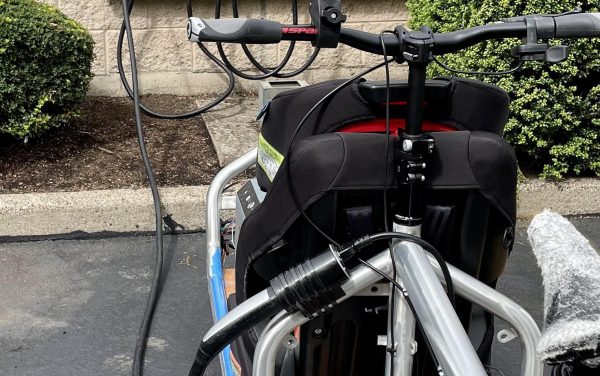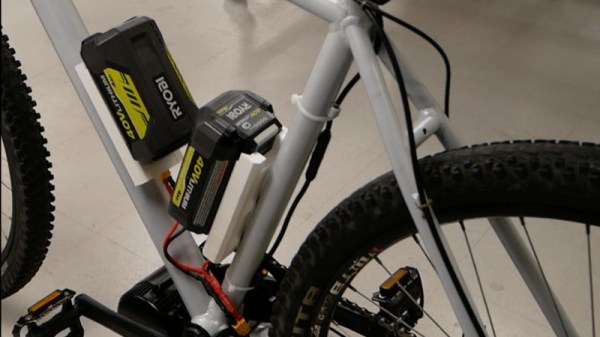The robotic revolution is currently happening, although for the time being it seems as though most of the robots are still being generally helpful to humanity, whether that help is on an assembly line, help growing food, or help transporting us from place to place. They’ve even showed up in our homes, although it’s not quite the Jetsons-like future yet as they mostly help do cleaning tasks. There are companies that will sell things like robotic vacuum cleaners but [Clay Builds] wanted one of his own so he converted a shop vac instead.
The shop vac sits in a laser-cut plywood frame and rolls on an axle powered by windshield wiper motors. Power is provided from a questionable e-bike battery which drives the motors and control electronics. A beefy inverter is also added to power the four horsepower vacuum cleaner motor. The robot has the ability to sense collisions with walls and other obstacles, and changes its path in a semi-random way in order to provide the most amount of cleaning coverage for whatever floor it happens to be rolling on.
There are a few things keeping this build from replacing anyone’s Roomba, though. Due to the less-than-reputable battery, [Clay Builds] doesn’t want to leave the robot unattended and this turned out to be a good practice when he found another part of the build, a set of power resistors meant to limit current going to the vacuum, starting to smoke and melt some of the project enclosure. We can always think of more dangerous tools to attach a robotic platform to, though.
Continue reading “Robotic Platform Turns Shop Vac Into Roomba”













